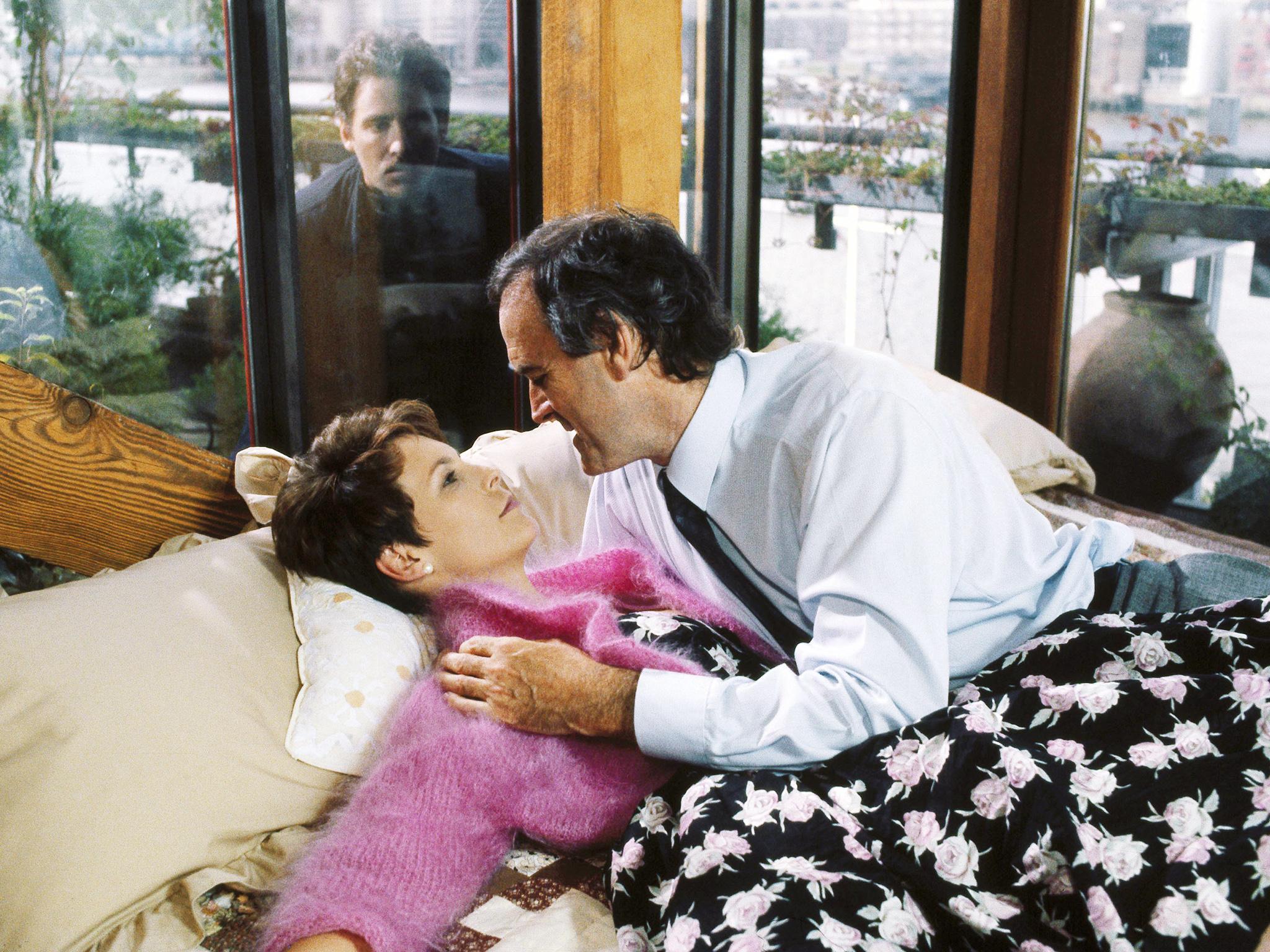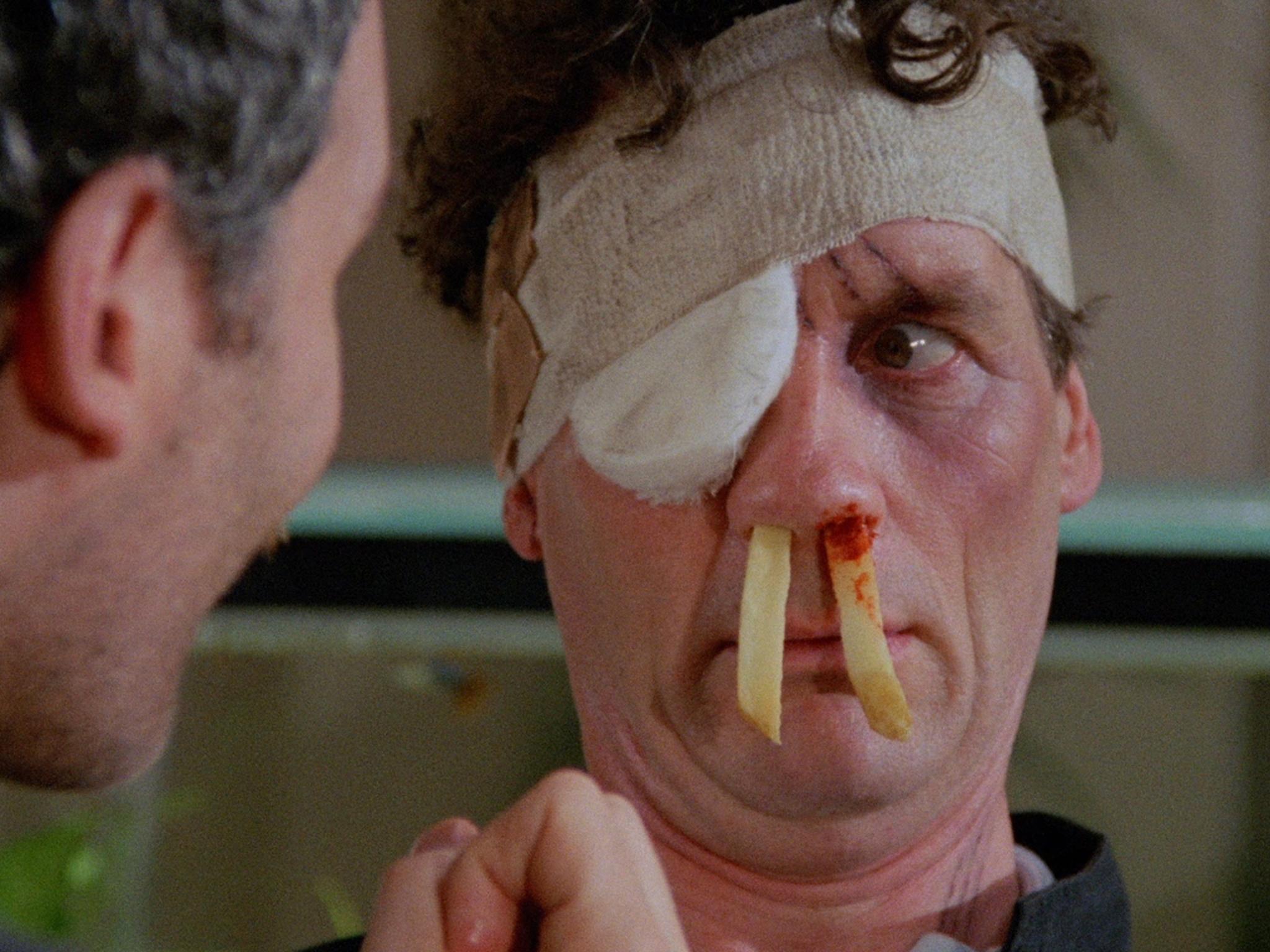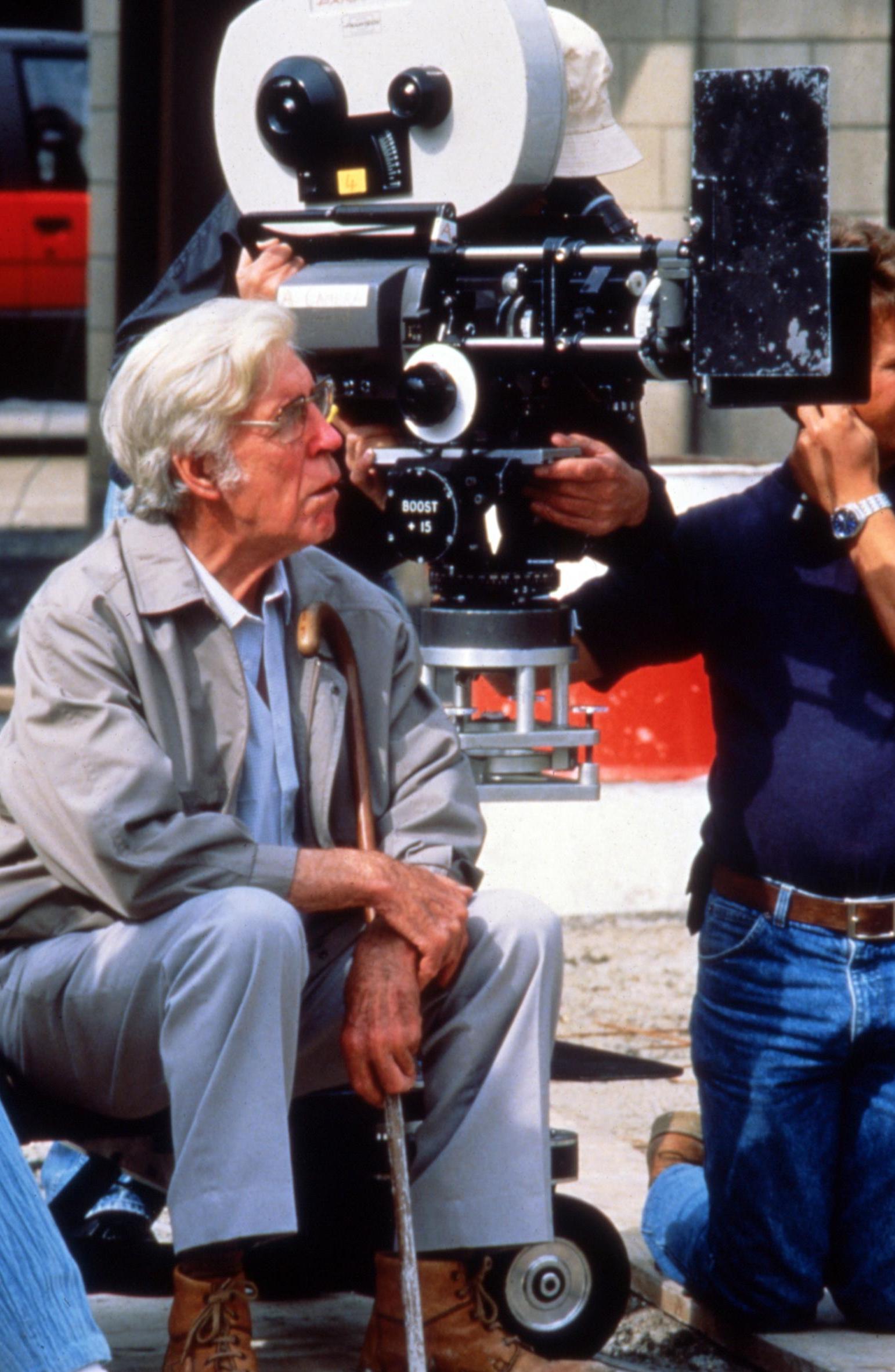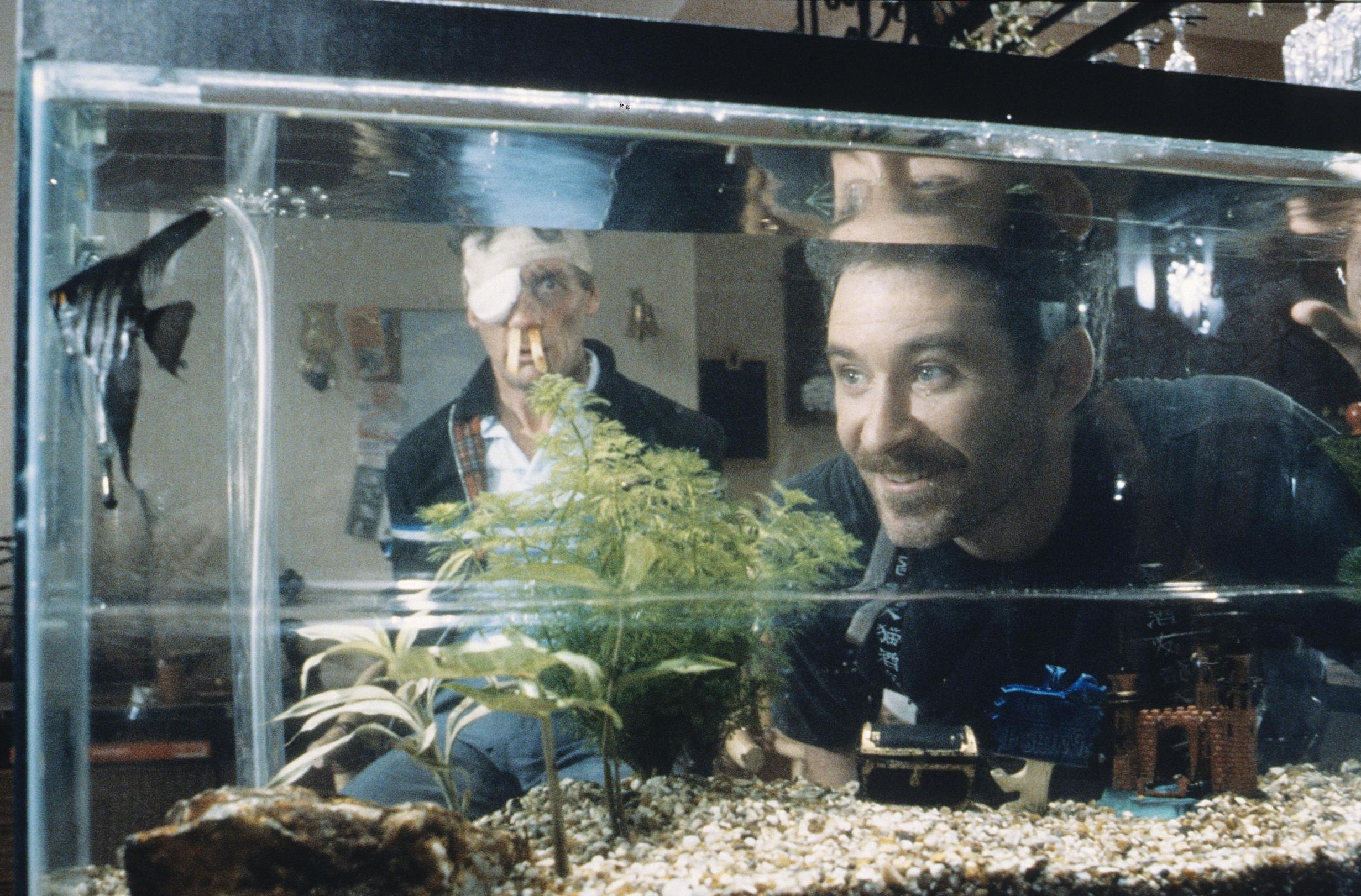A Fish Called Wanda mixes Ealing comedy with Pythonesque humour – but is it still funny?
A restored version of the 1988 heist farce screens at the Berlin Film Festival later this month, and what works has as much to do with the craft of John Cleese and director Charles Crichton as the squashed lapdogs and swallowed fish, says Geoffrey Macnab

There is one key difference between A Fish Called Wanda (1988) and the comedies and dramas that its director Charles Crichton made at Ealing Studios in the 1940s and 1950s. The Ealing films famously projected Britain and the British character in a positive light. They were celebrations of both the resourcefulness and quiet eccentricity of the British. By complete contrast, A Fish Called Wanda, written by and starring John Cleese, sets out to skewer the British or, more specifically, the English. The humour at their expense is not affectionate at all.
“Wanda, do you have any idea what it’s like being English? Being so correct all the time, being so stifled by this dread of doing the wrong thing. We’re all terrified of embarrassment. That’s why we’re so… dead,” the lanky English barrister Archie Leach (Cleese) moans to the American femme fatale (Jamie Lee Curtis) he has fallen for. “Most of my friends are dead, you know. We have these piles of corpses to dinner.”
Three decades after it was made, A Fish Called Wanda, which is being screened this month at the Berlin Film Festival in a restored version, can’t help but seem like a period piece, an Ealing-style farce reimagined for the Thatcher era. Instead of celebrating collective endeavour, the film is all about cynical, opportunistic individuals, ready to betray one another at the slightest opportunity. It’s still very funny, full of puns, slapstick and surrealistic, Pythonesque humour.
The English as shown here are incompetent, emotionally uptight, obsessed with money and generally dishonest. They care more for their pet dogs or fish than for their fellow human beings. Some, notably the petty thief Ken (Michael Palin) with the stutter, can’t get their words out. Others, like Archie himself or his bored, hectoring, self-absorbed wife, Wendy (Maria Aitken), or their horse obsessed daughter Portia (Cynthia Cleese), are articulate but very supercilious. They sneer contemptuously at “stupid”, “vulgarian” Americans like Otto (Kevin Kline), the American jewel thief who reads philosophy and history non-stop but still thinks that the Gettysburg Address is the place where Abraham Lincoln once lived.

The comedy is generally very cruel. The biggest laughs come when Ken is being tortured by having chips stuffed up his nostrils or when he is trying to assassinate the little old lady Mrs Coady (Patricia Hayes) but keeps on killing her pet lap dogs instead. Palin plays the stammering Ken beautifully, as a cunning but naive bumpkin. This is one of the best films about Anglo-US relations: about that strange fascination, incomprehension, affection and disdain the English and Americans have always felt for one another.
Cleese described his director and co-writer Crichton, born in 1910 and in his late 70s by the time he made A Fish Called Wanda as “a treasure, a man who knew so much more about film than anyone we’d ever met that it was almost embarrassing”.
Crichton, of course, could draw on his experience of having directed films like Hue And Cry (1947) and The Lavender Hill Mob (1951). He and Cleese had earlier collaborated on a script for a film called Rentasleuth which David Frost was planning to produce. In the event, the rights were sold on to Ned Sherrin, who didn’t want Crichton (presumably on the grounds that he was then so old and hadn’t directed a feature for many years). Cleese was appalled at Sherrin’s treatment of Crichton and refused to have anything to do with the film, which was made as Rentadick (1972) and was a resounding failure.
Cleese and Crichton went on to work together on training films for Cleese’s company Video Arts while plotting what was to become A Fish Called Wanda. Crichton later remembered that it took a full four years to develop and finance the film. This gave them plenty of time to work and rework their screenplay. During the development process, Cleese had gone off to the US to appear in Lawrence Kasdan’s western Silverado (1985), starring Kline, and had also met Curtis. He had sounded them both out about appearing in the film. The two Americans provided ideas about how their characters should develop. This meant that by the time A Fish Called Wanda finally went into production, its screenplay had been “reconsidered and reconsidered and reconsidered”, as Crichton put it. It took 13 drafts of the screenplay until Cleese was satisfied with what they had. He had gone to exhaustive lengths to ensure that every element of the comedy heist thriller, from the robbery of the Hatton Garden jewellery store to the denouement on the tarmac at Heathrow airport, fitted perfectly together.
Cleese oversaw the rehearsals but, once shooting began in earnest, the pipe-smoking Crichton was firmly in charge. Cast member Aitken remembers that he wasn’t the most demonstrative of filmmakers. He had one grunt for when he was happy and another for when he wasn’t.
“It was the most pleasurable film job I had ever had. One of the reasons was we had rehearsals for two or three weeks. You never get that. It freed us up,” Aitken states. “There was a certain amount of improvisation, particularly from Kevin [Kline], who would riff a bit.”
Kline’s riffing went on to win him Best Supporting Actor in 1989 for his role in the heist comedy.

Cleese continued to tweak the script and softened the ending when he realised that American audiences didn’t like the cruelty and cynicism of the original cut. He also took out the blood from one of the scenes in which a block of concrete lands on top of a little lapdog. (This was too much for the American preview audiences to stomach.)
Aitken had been cast after Cleese had turned up to see her in a National Theatre production of Bedroom Farce. “He became so utterly helpless with laughter that he windmilled in his seat and drew attention. The whole auditorium realised that John Cleese was in the stalls. It was his laughter that propelled the play. He would roar with laughter. They would laugh with him. Then, just when everything got under control again, he would remember why he laughed and he would laugh all over again. It completely sabotaged the play.”
The actors on Wanda could tell shooting was going well because they noticed the crew trying to control their chuckles. However, not everyone was enamoured with the film. “It’s not easy to describe the movie’s accumulating dimness or to understand what went wrong. Everyone knocks himself out to be funny. The worse the material becomes, the harder the actors work for increasingly less effect,” Vincent Canby wrote in The New York Times, in a review which described the film as a “private joke” which the crew and cast had made for their own enjoyment. “When all else fails, there are comic bits of business about armpits and bunions.”
Canby simply didn’t get the joke. It is precisely the armpits and the bunions that give the film its flavour. What could have been crude farce is transformed by its attention to intimate comic details like these. Kline’s Otto is forever sniffing at his armpits, either because he enjoys the aroma or because he wants to make sure there’s no lingering pong that might undermine him as a romantic figure. Cleese’s Archie, meanwhile, is shown picking at his feet in the bedroom to underline how completely ignored he is by his wife. Their sex life has long since ground to a halt. Archie is therefore very open to being seduced by the cheerily amoral Wanda.

Cleese’s Archie is an intriguing hybrid – a cross between Cary Grant (whose real name he shares) and Basil Fawlty. He is well-spoken and witty: a calm, upstanding barrister one moment and then a flapping neurotic the next.
Aitken remembers that Cleese exercised furiously in preparation for his nude scene. The rest of the cast were all very startled when they viewed the rushes and saw just how buff he had become. “He worked out like buggery to get that shape. We were all astonished.”
A Fish Called Wanda is far bawdier and more violent than the Ealing comedies on which it draws. Some of its humour hasn’t aged well. There are toe-curling scenes of the otherwise hardboiled Wanda quivering with joy whenever she hears Italian or Russian spoken, cartoonish moments involving Kline’s jealous Otto snooping on Archie and Wanda, and a strange sequence in which Cleese is caught with his pants down. Nonetheless, this is a very well constructed farce. The more fantastical and offbeat flourishes rarely slow down the plot. The storytelling seems to take its tempo from Kline, who is never still for a moment.
When the film played in the US, audiences would laugh uproariously at just how grotesque and silly its British characters were. When it played in the UK, the British were equally tickled by the oddity and vulgarity of the American characters.
The film may portray English and Americans in an acerbic and unflattering way but it was greeted with enthusiasm and affection that Crichton hadn’t experienced since he was making his post-war Ealing classics. The director, then 78, was nominated for an Oscar for A Fish Called Wanda. This was his first feature in 23 years. A near-forgotten figure in British cinema experienced a miraculous revival.
If the film does stand up, it is as much because of the craftsmanship as because of the scenes of lapdogs being squashed and fish being eaten. Aitken can tell the enduring power of the film by the way she is still stopped in the street, especially in the US. “They show it on American television a lot. I am taken endlessly by surprise when somebody screams “shut up Portia” at me. I think they’re about to hit me but then I remember it’s the film.”
‘A Fish Called Wanda’ is screening at the 2020 Berlin Film Festival from 20 Feb to 1 March
Join our commenting forum
Join thought-provoking conversations, follow other Independent readers and see their replies
Comments